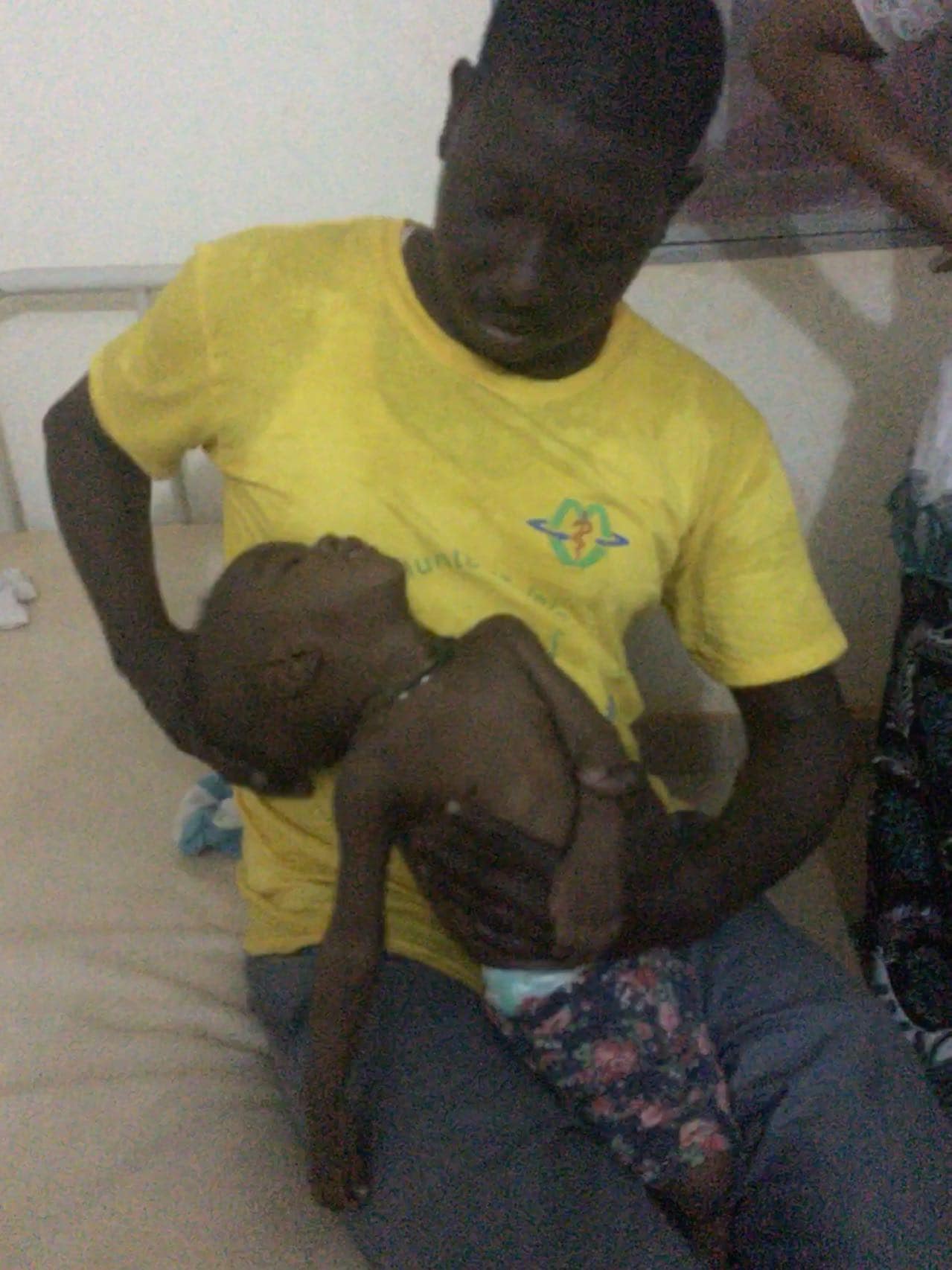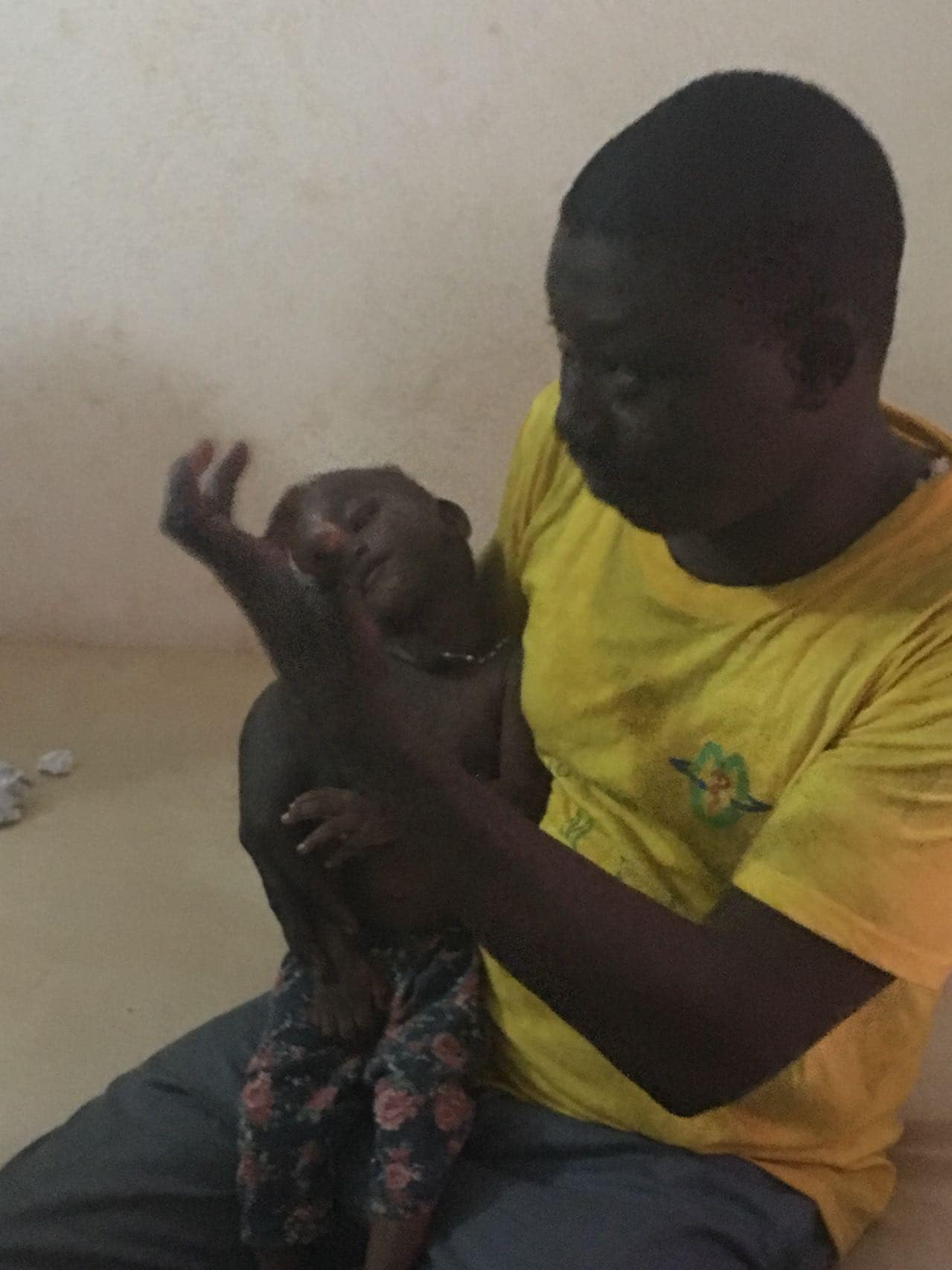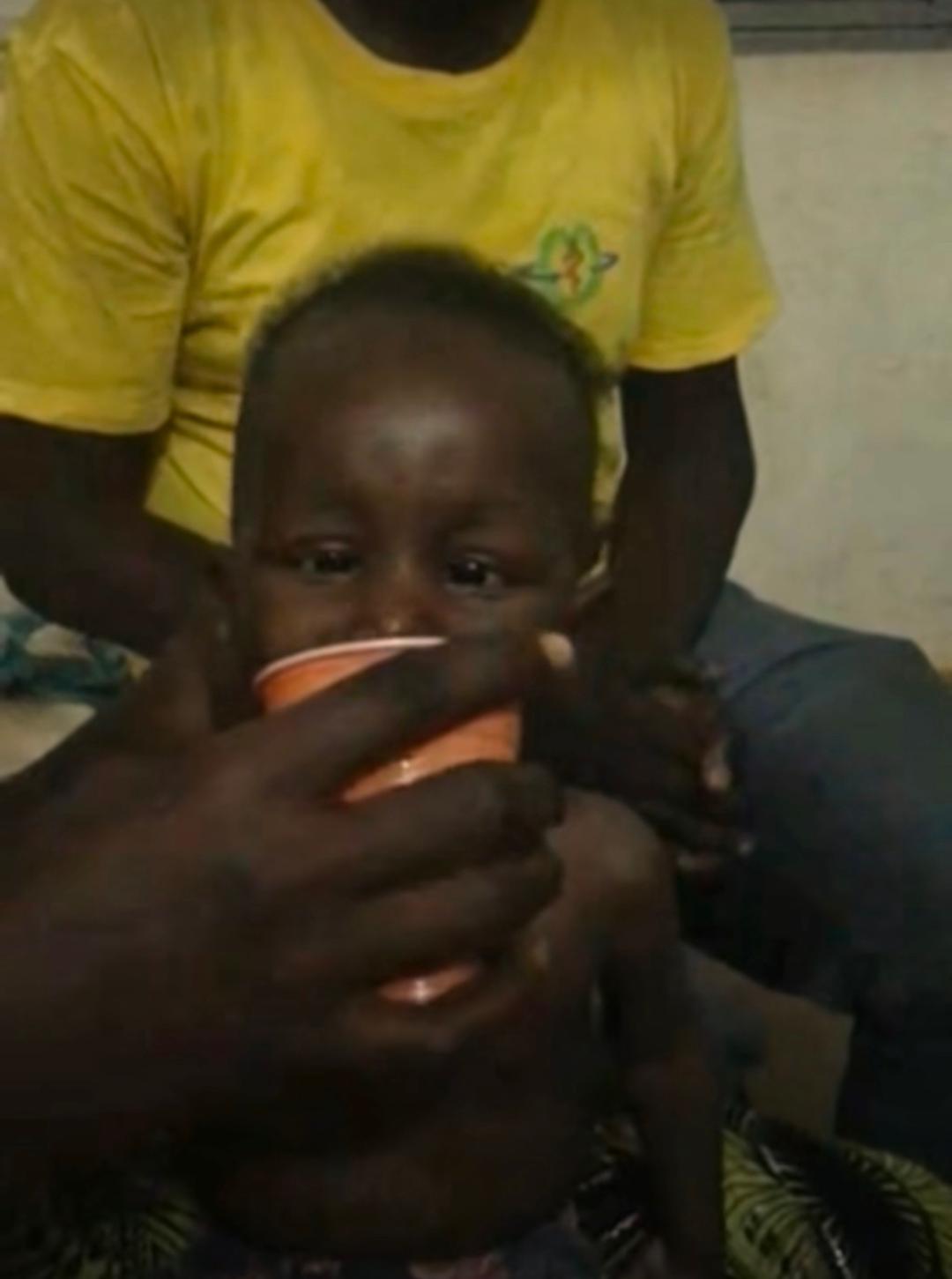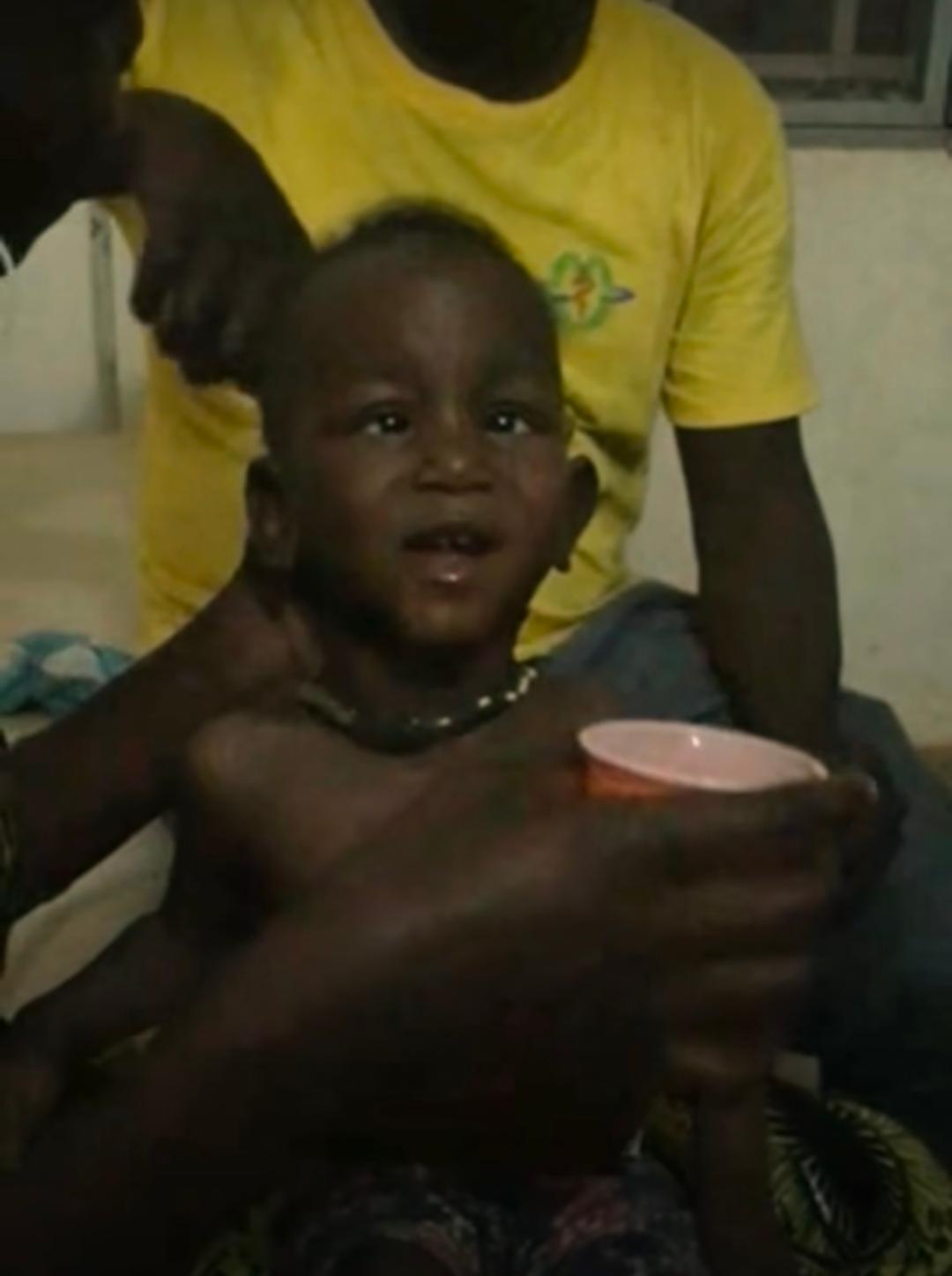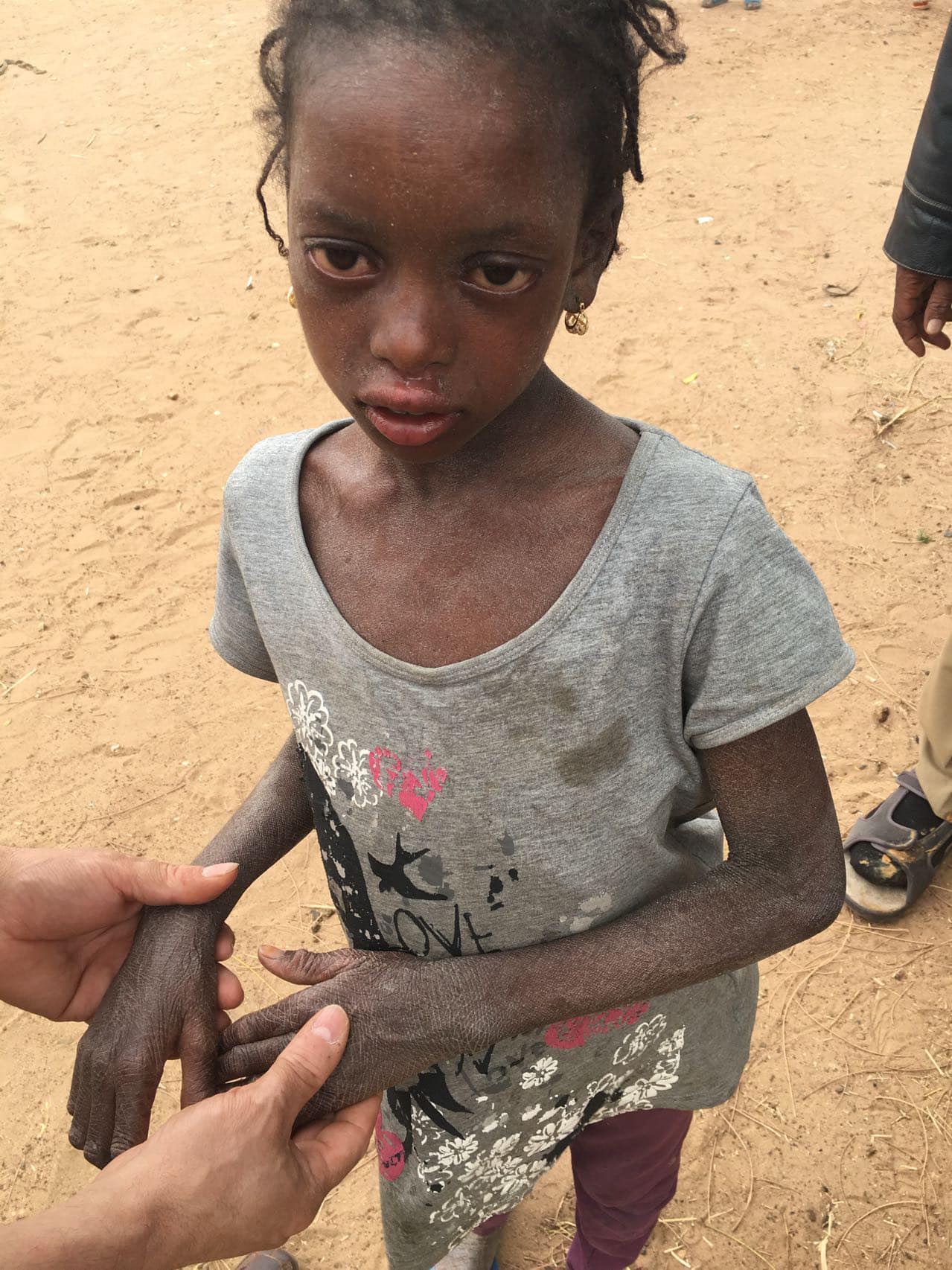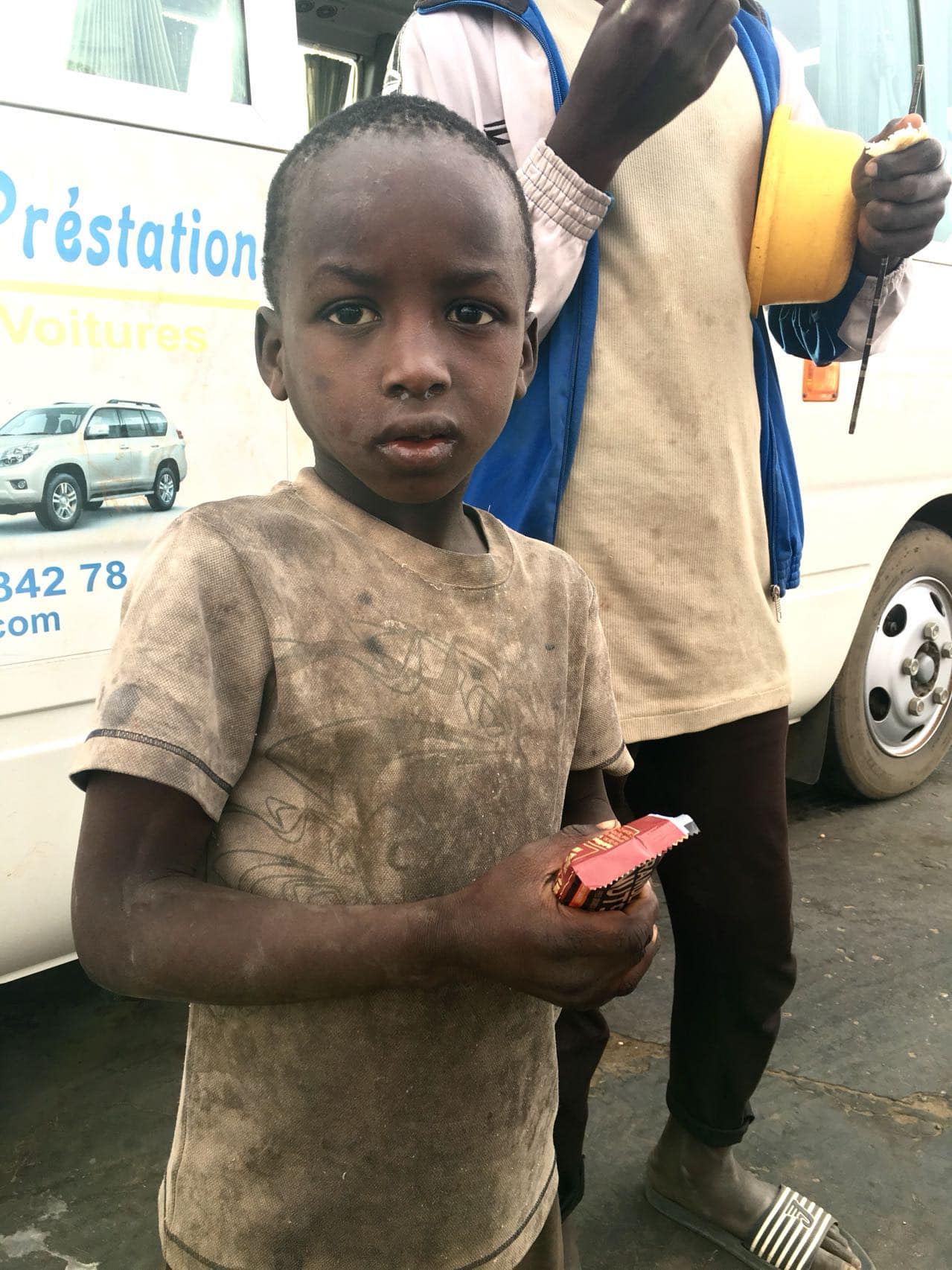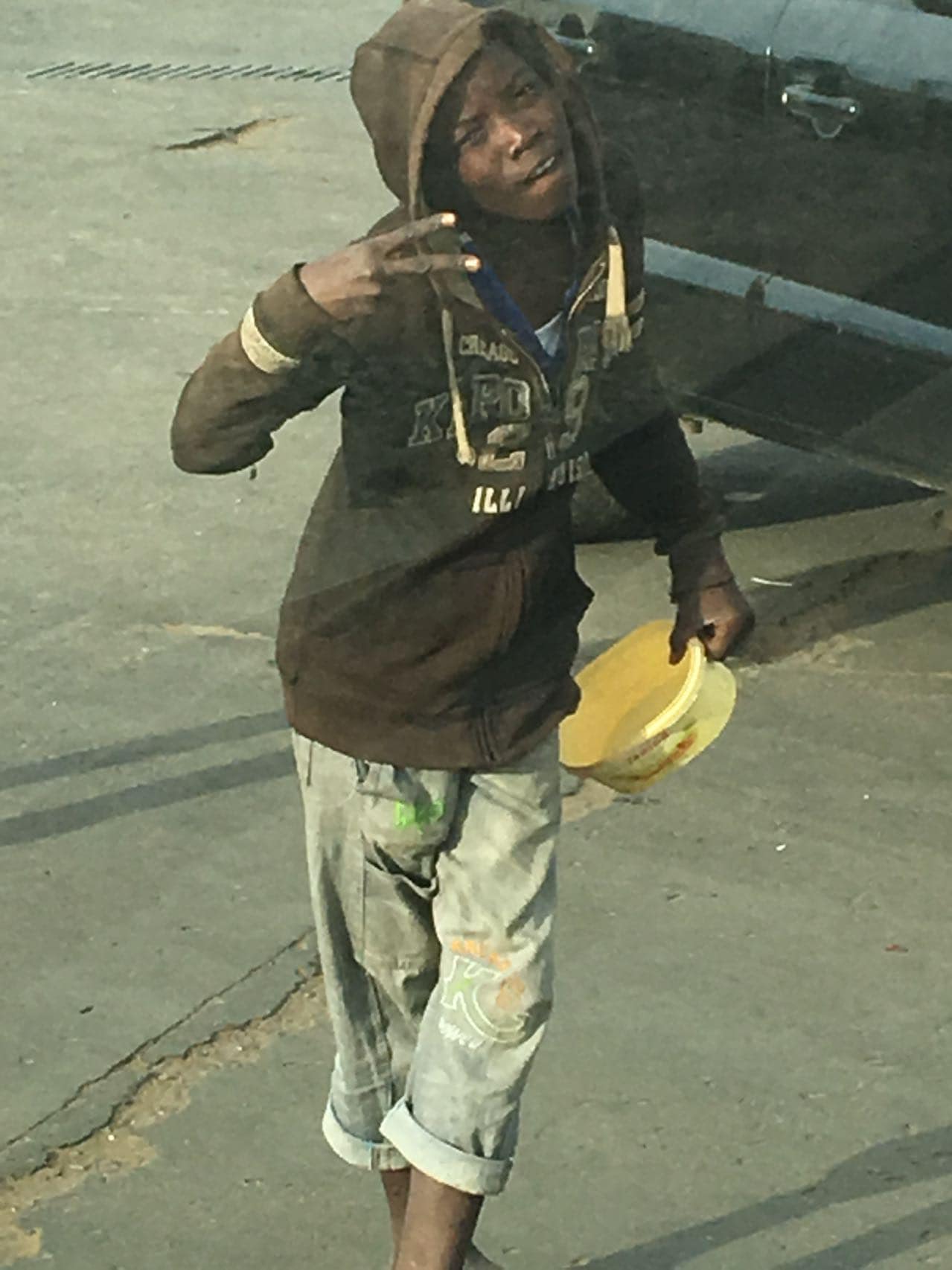Africa Cries Out previously reported a story about a boy with no anus – El Haji, a 6-month-old baby who underwent anal reconstruction surgery at the Kentagou Provincial Hospital in Senegal, has received the attention and blessings of many caring people. On December 19, 2024, when I visited the family in their village again, I learned the sad news that the child had passed away.
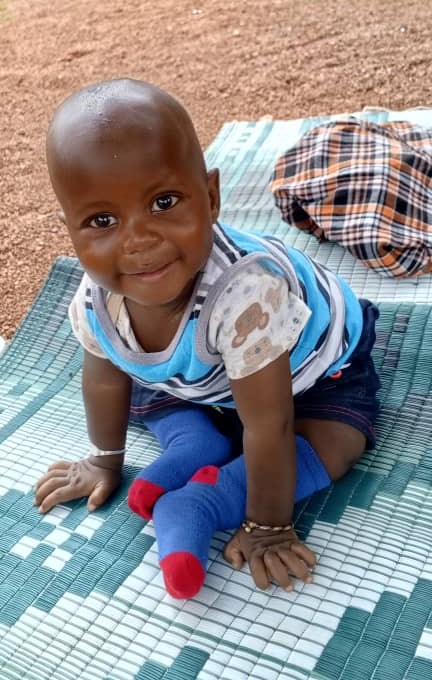 El Haji, who was once happy
El Haji, who was once happy
El Haji recovered well after the first anal reconstruction surgery, and was able to eat and defecate normally. However, a complication arise after the subsequent fistula resection surgery, due to improper transverse colon suture, which led to fecal leakage and infection within the abdominal cavity. After doctors discovered the infection, they performed several abdominal cleaning operations, and still charged the patient a sky-high medical fee at this critical moment. The Holy Spirit moved those of us in the United States to pay for all his expenses through the “Africa Cries Out” organization. The child’s fever continued after the cleaning operations, until El Haji finally died from sepsis, an overwhelming infection that travelled in his blood. After the hospital realized that their doctors committed a mistake in surgery, they dared not ask for any more fees. In the United States, this situation will inevitably lead to medical lawsuits, but in Senegal, due to the lack of legal protection related to medical care by the authorities, the child’s parents can only take the child home in tears. When we went to visit the family, they were trapped in the quagmire of grief. When we hugged them, we could clearly feel the ups and downs of their shoulders and their whole bodies trembling.
 Pastor Anna and I visited El Hadji’s parents together
Pastor Anna and I visited El Hadji’s parents together
What I Saw
As a doctor, I have witnessed the death of many lives, but some deaths in Senegal shocked me greatly. For example, the death of Dr. Faye, who is well known to everyone, happened next to me, and my article “The Fall of the Sun in Senegal” has detailed records.
Another example, on the evening of February 27, 2018, after we finished the medical consultation in the leprosy village, it was already dark, and a mother rushed to seek medical treatment with a one-year-old boy in her arms. A local doctor who came with me, without taking a detailed medical history and physical examination, concluded that the child was suffering from “heat shock”. He then took off his sweat shirt and soaked it in water, wrapped the child, and patted his back. Fifteen minutes later, the child was still listless and unresponsive.
Child who is unable to lift his head
After a brief interview with the child’s mother, I learned that the child had diarrhea for three days, with clear watery stools. He cried at first, but gradually became quiet. The examination showed that the body temperature was normal, the abdomen was soft, and the eyelids, mouth and tongue all showed signs of dehydration. I judged that the diarrhea caused dehydration and that oral rehydration should be given immediately. We picked up a can of Coke and slowly poured it into the child’s mouth. He soon began to swallow actively. Ten minutes later, his little head stood up and his little eyes began to look around.
Child after rehydration
Yet another example, on April 8, 2017, a father brought two children with hydrocephalus in a horse-drawn carriage, hoping to get help. The unfortunate brothers both suffered from the same disease, and the elder brother’s condition was more serious. The General Hospital of Senegal said that surgery was possible, and each person would need 20,000 US dollars. After I returned to the United States to consult experts, I was advised to continue observation rather than surgery.
 Two children with hydrocephalus
Two children with hydrocephalus
In Senegal, women give birth to an average of five children, half of whom will die from various diseases. And the average life expectancy in Senegal is only 50 years old. Why?
My Thoughts
After in-depth thinking, I think the main reasons for this situation are as follows:
First, the defects of the medical and health system. Many diseases themselves are not difficult to treat, but correct diagnosis, early intervention, and poor healthcare delivery are deficient. For example, for leprosy, early detection and standardized treatment are the key to control, and patients need to strictly follow the doctor’s instructions to complete the course of treatment to prevent drug resistance. But leprosy villages lacks attention, and there are not enough doctors practicing in such places. In February 19, 2018, I met a French epidemiologist in a leprosy village. He told me that when he investigated nine local leprosy villages, he found 72 new cases. Meanwhile, in the leprosy village where we serve, Fadige Village, there are zero new cases. This is due to the fact that we have established a small hospital in Fadige Village and equipped it with a management model of full-time healthcare providers to attend to the villagers.
 Photo of me and a French epidemiologist
Photo of me and a French epidemiologist
The second problem is the lack of medical education resources. In Senegal, medical students only need to complete three years of basic education and one year of residency to obtain a bachelor’s degree in medicine, and then they can continue their studies in their chosen specialty. This is such a short time for medical studies, compared to other countries that requires 4 years of general education with specialty in health sciences, and another 4 years of proper medical education plus a year of internship in hospitals. From the community doctors I have come into contact with, it seems that they generally have a problem of insufficient professional training. When we discuss medical professional issues, they often appear very nervous and finds it difficult to give their professional opinions. In addition, the uneven distribution of medical resources is a global challenge, and I will not elaborate on it here.
Children on the streets of Senegal
Since 2013, the “Africa Cries Out” medical team has organized doctors from the United States, Europe and Asia to go to Senegal for free medical operations every year, except for the pandemic years. On March 6, 2025, we will organize hundreds of medical and related professionals to set off again. We sincerely thank these doctors for selflessly dedicating their time and professional skills, but the scope of our help is still limited. There are too many needs ahead, and not many patients can receive our rescue services. Therefore, we have a dream to build a “Dr. Faye Memorial Hospital” in Senegal, introduce the American residency training system, and cultivate local medical talents who can stay in Senegal, have professional capabilities and are full of love. Whether you are a medical worker or not, we sincerely invite you to participate or support this cause and join our team. As long as all parties work together sincerely, this dream will come true.
Dear brothers, sisters and caring people, every day without giving love is a betrayal of life and is empty. Every moment of helping others is a real experience and extension of life. Love is responsibility and the meaning of life. Without love, the world will be dark and full of smoke, just as Ecclesiastes 2:11 says: ” Then I considered all that my hands had done and the toil I had expended in doing it, and behold, all was vanity and a striving after wind, and there was nothing to be gained under the sun.”
Let us no longer waste our lives, abandon emptiness, but rather use love to demonstrate the value of life.
Raise your hands and join us!
********************************
The registration for the March 2025 Senegal Medical Short-term Mission of “Africa Cries Out” has recently ended. More than one hundred volunteers have signed up for this short-term mission. “Africa Cries Out” thanks everyone for their strong support. Please also ask all caring friends and brothers and sisters to continue to help “Africa Cries Out” to collect second-hand mobile phones, computers, 90% new sports shoes, over-the-counter anti-inflammatory and analgesic drugs, vitamins, toys, new toothpaste and toothbrushes and other supplies for the African people.
Requirements for donation of mobile phones and computers:
Old mobile phones should be cleared of all their the contents and removed from the owner’s accounts (Factory Reset). Especially for Apple phones, don’t forget to remove it from your iCloud account, otherwise it cannot be activated. Please also attach the power plug.
Computer donors need to back up their data. If there is sensitive data that you are worried about, you can make a request and we will remove the hard drive and return it to the donor. Apple computers also need to be removed from the iCloud account, otherwise they cannot be activated.
Laptops need to check the battery. Generally, the life of a rechargeable battery is about 500 times of charge and discharge. After 3 or 4 years, it is almost useless, so it needs to be checked and replaced. If it cannot be replaced, please attach the power plug.
If necessary, “Africa Cries Out” can issue relevant certificates for everyone. After the materials are collected, please contact “Africa Cries Out” and we will provide you with the mailing address for the materials.
*********************************
If you are moved and willing to support our African ministry, you can give your donation by:
-Writing a check to Africa Cries Out and sending it to Jun Xu, MD, 1171 E Putnam Avenue, Riverside, CT 06878 USA. You will receive a tax-free receipt recognized by the US Internal Revenue Service.
-Zelle: Africacriesout@gmail.com.
-Online credit card donation https://africacriesout.net/ (note that credit card company will charge a handling fee), you will receive a tax-free receipt recognized by the IRS.
Our team solemnly declares that 100% of your donation will be used for the people of Africa, and we do not have a penny of administrative fees.
Jun Xu WeChat: jun9174343767
Email: Africacriesout@gmail.com
Public WeChat account: LifeExploring (人生天路)
Webpage: https://africacriesout.net
———————————————————————————————————
Editors in charge: Cao Juanjuan, Zhang Kun
Translator: Wei Peng
English editor: Xi Wang
Editor: Doris Cruz

